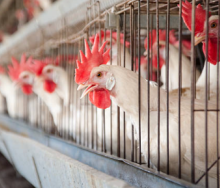South African consumers are pessimistic about the outlook for the economy, believing splashing out annual bonuses on durable goods may not be such a good idea this festive season.
This is according to the FNB/BER Consumer Confidence Index (CCI) which recovered from -25 index points during the second quarter of 2023 to -16 in the third quarter, but edged slightly lower to -17 index points in the fourth quarter.
“Although consumer sentiment remained higher compared to the very low levels recorded during the first half of 2023, the latest reading of -17 is the lowest festive-season consumer confidence reading in more than two decades,” the Bureau for Economic Research (BER) and FNB said in a joint CCI statement on Thursday, warning that consumers are not in a jolly, high-spending mood.
“Sales of big-ticket discretionary goods, and especially interest-rate-sensitive goods, will likely underperform relative to previous holiday shopping periods.”
In fact, sentiment is even lower than the reading of -12 recorded during the Covid-19-afflicted fourth quarter of 2020.
“This suggests consumers will keep tight control over their purse strings during the holiday shopping season, which should worry retailers of expensive luxury goods in particular,” the FNB/BER statement said.
The slight deterioration in the CCI during the fourth quarter of 2023 can be ascribed to a relapse in the economic outlook sub-index of the CCI, while the index measuring the appropriateness of the present time to buy durable goods, such as vehicles, furniture, household appliances and electronic goods, edged up by one index point to -25.
“Nevertheless, most consumers still feel that the present is not the right time to purchase big-ticket durable goods items,” the statement said.
A breakdown of the CCI per household income group shows that the confidence levels of both high-income households (earning more than R20 000 per month) and middle-income households (earning between R5 000 and R20 000 per month) declined by two index points. In contrast, the confidence of low-income households (earning less than R5 000 per month) edged up by three index points.
FNB chief economist Mamello Matikinca-Ngwenya said sustained strong job growth heading into the festive season, especially in the tourism sector, may have countered the adverse impact of cost-of-living pressures on low-income households.
The Quarterly Labour Force Survey shows that 809 000 jobs were created during the first three quarters of 2023, pushing total employment back up to its pre-pandemic level.
“The announcement that the Social Relief of Distress (SRD) grant will be extended through March 2025 probably also buoyed the confidence of the 8.6 million SRD grant recipients,” Matikinca-Ngwenya said.
“However, high interest rates and a marked deterioration in South Africa’s fiscal position are likely worrying high- and middle-income consumers. In its November MTBPS (medium-term budget policy statement), the National Treasury said it would introduce additional measures to raise tax revenue and cut real government spending in 2024, which will adversely affect the disposable income of high- and middle-income consumers in particular.”
Matikinca-Ngwenya said the index suggested consumers were cognisant of the adverse impact of load-shedding, Transnet’s logistical constraints, and a tightening in fiscal policy.
“However, rightly or wrongly, they do not expect flagging economic growth to lead to an equivalent deterioration in their own financial positions,” he added.
Sales of big-ticket discretionary goods, and especially interest-rate sensitive goods, will likely underperform relative to previous holiday shopping periods.
“Essentials, value-for-money products and affordable luxuries will likely be at the top of consumers’ holiday shopping lists,” said Matikinca-Ngwenya.













